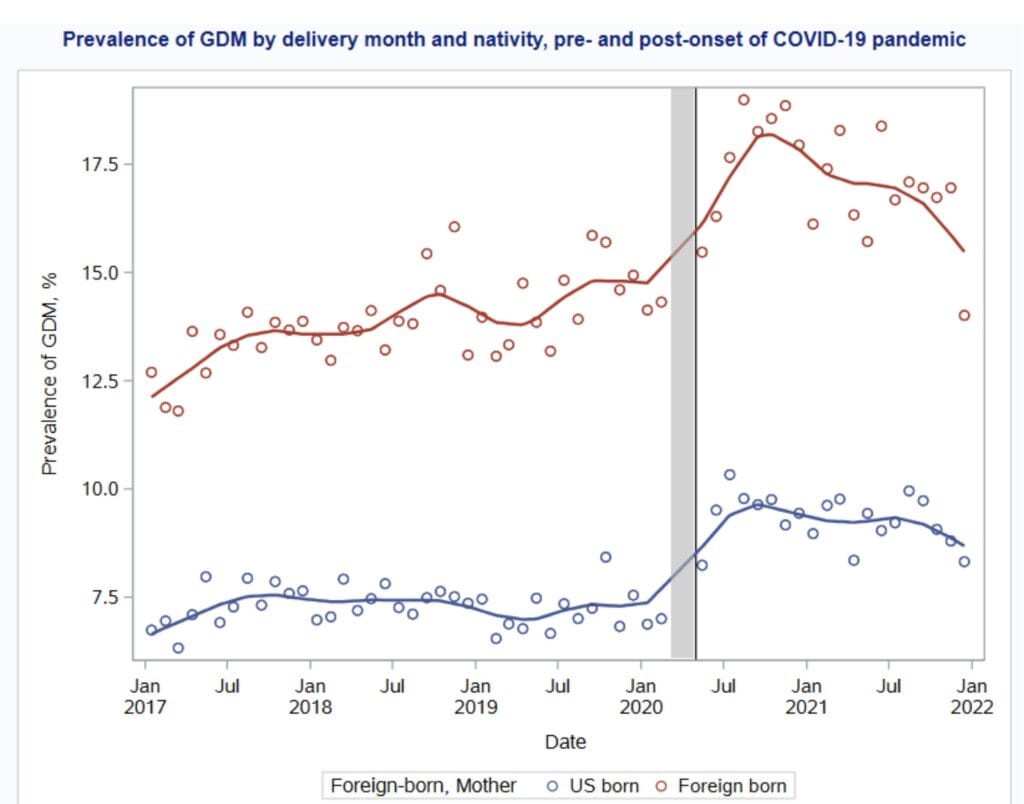Perinatal & Pediatric
The impact of the COVID-19 pandemic on gestational diabetes risk: Did immigrants fare worse? Natalie Boychuk* Natalie Boychuk Bohao Wu Katharine McCarthy Teresa Janevic
Gestational diabetes (GDM) is a common pregnancy complication with profound implications for future cardiometabolic risk. In New York City (NYC), immigrants are at higher risk of GDM, but the impact of the COVID-19 pandemic on GDM risk is unclear. We examined trends in GDM risk by month before and after onset of the COVID-19 pandemic and assessed if associations varied by nativity. We conducted an interrupted time series analysis of births to women without pre-pregnancy diabetes in NYC between January 2017-December 2021 using linked NYC birth record and hospital discharge data (n=402,025). We obtained maternal characteristics from the birth record. GDM was ascertained if indicated on either the birth or hospital record. Births were classified as pre-(January 2017-February 2020) or post-onset (May 2020-December 2021) of pandemic. We excluded births in March-April 2020. We constructed unadjusted and adjusted log binomial regression models and stratified by nativity. Half (50.7%) of women were foreign-born. GDM prevalence overall was 11.4%. After COVID onset, GDM risk increased by 5.3 per 100 deliveries (95% Confidence Interval [CI]: 3.7-7.0); this pattern persisted after adjusting for education, insurance, and parity (post vs. pre difference= 5.6, 95% CI: 4.0-7.2). Increases in GDM risk in the post-onset period were greater in foreign-born (post vs. pre= 8.3, 95% CI: 5.7-10.9) compared to US-born women (post vs. pre=3.4, 95% CI: 1.4-5.4). After the initial large increase, GDM risk decreased only slightly after the onset of COVID-19 by 0.08 percentage points per month (95% CI: -0.11, -0.04); this change was more pronounced in foreign-born (-0.14, 95% CI: -0.19, -0.09,) than US-born women (-0.03, 95% CI: -0.07, 0.01). GDM risk increased during the COVID-19 period, with marked disparities by nativity. While this trend appears to be receding, additional research is needed to understand the ongoing impact of COVID-19 on cardiometabolic health disparities in pregnancy.

